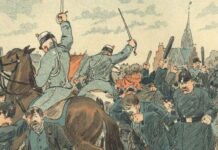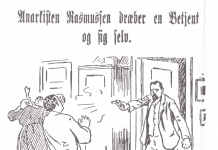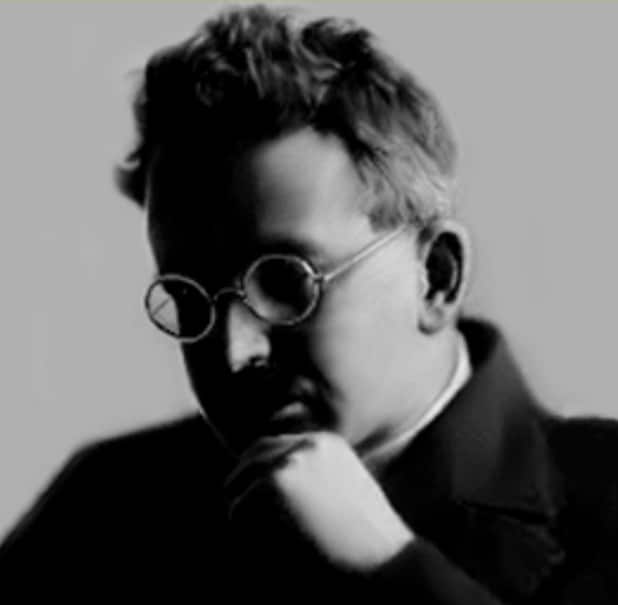
Socialistisk Biblioteks Tidslinje med links til begivenheder og personer i 1892.
Se også Index over personer, organisationer/partier og værker (som bøger, malerier, mm.), steder, begivenheder, mv., der er omtalt på hele Tidslinjen, titler og indhold på emnelisterne osv.
14. januar 1892
Den tyske kirkeleder og antinazist Martin Niemöller fødes i Lippstadt i delstaten Nordrhein-Westfalen. (Dør 6. marts 1984).
Leksikalt:
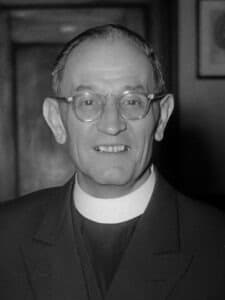
Kilde: J.D. Noske / Anefo (Creative Commons Zero, Public Domain Dedication).
- Martin Niemöller (Wikipedia.dk). Kortere dansk artikel. Se længere på engelsk (Wikipedia.org)
- Martin Niemöller (Denstoredanske.dk). Lidt længere artikel.
- “Først kom de for at …” (Wikipedia.dk). Om digtet, der tilskrives Niemöller.
Links:
Martin Niemöller var præst, nationalist og modstandsmand. Af Henning Nørhøj (Kristendom.dk). “I anledning af Auschwitsdag kan du læse om Martin Niemöller, der først modarbejdede den tyske Weimarrepublik, kommunismen og siden det nazistiske styre.”
Martin Niemöller’s famous quotation: “First they came for the Communists …”
(University of California, Santa Barbara, February 7, 2021). “1. What did Niemoeller himself say? 2. Which groups did he name? 3. In what order?” With Biograhy and Versions in Niemöller’s publications.
Se også:
Kirchenkampf (Wikipedia.dk). Dansk artikel om tysk kirkehistorie under nationalsocialismen.
4. februar 1892
Den spanske venstrefløjsleder og formand for partiet POUM, Andrés Nin,
(catalansk: Andreu Nin i Pérez) fødes i El Vendrell i Catalonien (myrdes af stalinistiske agenter 20. juni 1937)
Se på Socialistisk Bibliotek:
Linkboxen: Andrés Nin & POUM
Emnelisten: Den spanske revolution og borgerkrig 1936-39 / The Spanish Civil War and Revolution 1936-1939
15. juli 1892
Den tyske kritiker Walther Benjamin fødes i Berlin. (Angiveligt selvmord 26. september 1940, Frankrig på den lukkede grænse til Spanien).
Leksikalt:
Benjamin, Walter (Leksikon.org)
Walter Benjamin (Wikipedia.dk). Kort intro på dansk med link, bla. til billedserie om “Passagen” i Port Bou. Og længere artikler på Wikipedia: English + Deutsch, + links.
Walter Benjamin, 1892-1940 (Marxists Internet Archive; Reference writers). Biography + 2 articles.
Walter Benjamin’s writings in German and in English. By Ross Wolfe (The Charnel-House, December 10, 2015). With many books online.
På dansk og svensk:
Sande historier om verden: kulturhistorie for børn og voksne – radiofortællinger. Af Walter Benjamin (Forlaget Senmund, 2017, 158 sider). Se uddrag fra bogen.
Walter Benjamin – udfordrende inspirator. Af Bjarne Nielsen (Arbejderen, 24. oktober 2007). Anmeldelse af Walter Benjamin: Passageværket, bd.1-2 (Forlaget Politisk Revy, 2007, 1264 sider)
Benjamins marxism (pdf). Av Michael Löwy (Zenit, nr.1, 1993; online på Marxistarkiv.se). “I det moderna marxistiska tänkandets historia intar Walter Benjamin en unik plats: han är den förste historiematerialisten som bryter radikalt med framstegsideologin.”
Walter Benjamin och historien (pdf). Av Terry Eagleton (Zenit, nr.1, 1993; online på Marxistarkiv.se)
Articles:
Walter Benjamin warned us against the illusions of capitalist progress (Jacobin, December 19, 2022). Daniel Finn interviews Esther Leslie: “Walter Benjamin was one of the most influential cultural theorists of the last century. There have been many attempts to defang and deradicalize Benjamin’s work, but his Marxist commitments run right through his dazzling intellectual legacy.”
Reading Walter Benjamin politically. By Joe Stapleton (Against the Current, Issue 214, September-October 2021). Review of Frederic Jameson, The Benjamin Files (Verso, 2020, 272 p.). “Simply put, Jameson’s work offers one of the most compelling, comprehensive, and rigorous examples of what it means to think like a Marxist. The Benjamin Files is challenging but in a good way, and the payoff is worth it.”
Walter Benjamin’s ‘Critique of Violence’ is a revolutionary call to arms. By Duncan Stuart (Jacobin, August 19, 2021). “German philosopher Walter Benjamin published his famous essay ‘The Critique of Violence’ a hundred years ago. It shows Benjamin’s commitment to a Marxist vision of workers’ revolution against a legal system that protects and mystifies ruling-class power.”
Eightieth anniversary of Walter Benjamin’s death: Ten theses on his contribution to critical theory. By Michael Löwy (Fourth International, 15 November 2020). “In homage to his memory, a few brief notes on Walter Benjamin’s contribution to Marxist Critical Theory.”
Benjamin, Blanqui and the Apocalypse. By Doug Enaa Greene (Red Wedge, September 13, 2016). “For Blanqui and Benjamin, the revolution involves a rupture.”
The young Benjamin. By Michael Löwy (Jacobin: Reason in Revolt, 8 January 2016). “Walter Benjamin’s Marxism owed much to his early engagement with anarchism and surrealism.”
A vibrant portrait of Walter Benjamin. By Stephen Philip (International Socialism, Issue 148, Autumn 2015). Review of Howard Eiland and Michael W Jennings, Walter Benjamin: A Critical Life (Harvard University Press, 2014, 768 p.)
The fight against ‘mechanical Marxism’. By Chris Bambery (Socialist Worker, Issue 2154, 6 June 2009). “If it were not for his final writings on history, Benjamin would be best remembered for his cultural writings.”
Walter Benjamin and the classical Marxist tradition. By Neil Davidson (International Socialism, Issue 121, Winter 2009, p.157-172). “Benjamin’s central focus on culture and his absence from direct political engagement tend to exclude him from the front rank of the classical Marxist tradition …”
Benjamin’s emergency Marxism. By Chris Nineham (International Socialism, Issue 119, Summer 2008, p.111-119). Review of Esther Leslie, Walter Benjamin (Reaktion, 2007, 256 p.). See the book online (pdf).
Walter Benjamin. By Michael Löwy (Platypus Review, Issue 5, May-July 2008). “… his Marxism has a peculiarly pessimistic spirit”.
Walter Benjamin and commodity capitalism. By Esther Leslie (Socialist Worker, Issue 2008, 8 July 2006). “The Marxist critic Walter Benjamin was one of the first to analyse the links between consumer culture and capitalism.”
A metaphysical materialist. By Richard Wolin (The Nation, October 16, 2006). “Philosopher Walter Benjamin married Marxism and theology in an attempt to give hope to the hopeless.”
Tragedy, progress and struggle (Workers’ Liberty, Issue 66, January 2001). “Esther Leslie surveys the ideas of Walter Benjamin, a Marxist writer who died in obscurity 60 years ago but whose works are now influential in many areas of study.”

Se også:
An homage to Walter Benjamin: arcades, barricades, and public sex. By John Mage (MR Zine, 27/09/2005)
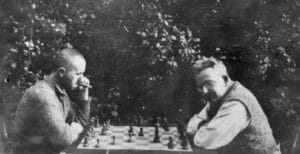
Om Walter Benjamins venskab og forhold til Bertolt Brecht,se links på Tidslinjen 20. juni 1933 om Brechts eksil i Svendborg.
22. juli 1892
Den internationale afholdsbevægelse, IOGT (Independent Order of Good Templars) splittes, da der dannes en ny bevægelse, som accepterede indtagelse af overgærede ølsorter (lyst øl), da man ikke ville fratage de arbejdende øllet helt, og pga. fysisk arbejdendes drikketraditioner. Til det oprindelige I.O.G.T. knyttedes et N. (Nordisk), N.I.O.G.T.
Se:
Afholdsbevægelsen + International Organisation of Good Templars (Wikipedia.dk)
N.I.O.G.T 1892-1942. Et udsnit af dansk kulturs historie. Af Sigurd Schoubye (Jensens Homepage). Afholdsbevægelsens socialhistorie – de første 50 år.
Arbejderbevægelsen og afholdsbevægelsen (pdf). Af Sidsel Eriksen (Årbog for arbejderbevægelsens historie, nr. 22, 1992, side 351-369). Om forsøget på en selvstændig afholdssag i arbejderbevægelsen, der endte i det kooperative bryggeri “Stjernen” og Socialdemokratiets kamp for bedrede leveforhold og svage ølsorter!
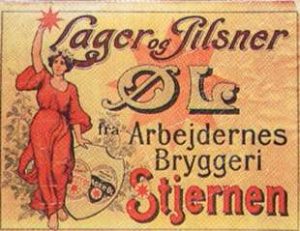
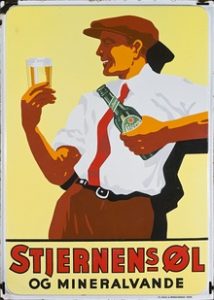
Se også:
Stjernen (Wikipedia.dk)
Bryggeriet Stjernen (Arbejdermuseet)
Henning Sørensen – 80 år (Nordjydske, 14. april 2012). Portræt af formanden for Danmarks Afholdsforening, tidl. byrådsmedlem i Grenå for SF/Enhedslisten.
En satirisk “afholdssang” med slutlinjen “NED MED DEN FORDØMTE SNAPS” (YouTube, de første 1:35 min. af 5:10 min.).
23. september 1892
Som de første kvinder i verden får kvinder i New Zeeland fuld parlamentarisk stemmeret.
“Den lovgivende Forsamling i Wellington i New Zeeland har den 23. September vedtaget et Lovforslag om Kvindens Stemmeret”.
(Citat fra tidsskriftet Hvad vi vil, årg.5, nr. 43, 23. oktober 1892)
Se:
Women’s suffrage in New Zealand (Wikipedia.org)
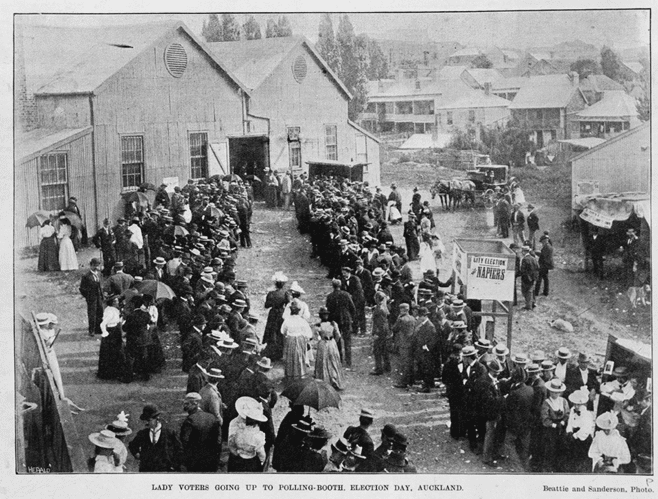
Se også på Socialistisk Bibliotek:
Linkbox: Kvindernes valgret
















